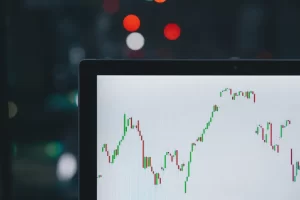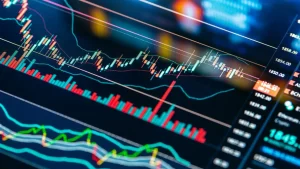
Trading forex on the internet can be a highly profitable experience, but it can also be very bad for the pocket if you’re not prepared. One of the most common reasons why beginners fail is that they do not manage their exposure to risk commensurate with their trading experience.
If you don’t already know all manner of trade tricks, you might well be scared off But never fear. We’ve got a whole piece on these and many more.
Basics
The process of forex trading implies the opportunity to buy and sell a trade based on the currency pair. At the same time, forex is always traded in pair; the forex pair consists of two components: a base currency and a quote currency.
Prices for the currency pairs are the result of supply and demand pressures, which in turn are influenced by economic news, the policies of central bankers, political developments, or any economic news that could affect them from their own country; for example, a central bank in one country injecting cash into their economy can make their currency rise.
The forex market has a volume of trading that typically is impractical for individual traders, corporations, banks or hedge funds to access. Nearly all trading in the forex markets takes place electronically and is anonymous. Forex trading has become prevalent with individuals as well as with larger corporation and financial institutions around the world. When trading forex online, the market never sleeps and is open for five days per week. Unlike the stock market, Forex trading takes place 24 hours a day where the market is remain opened five full days every week. These two factors may seem attractive to many because it means that someone can trade at any time or more importantly at their convenience. However Forex trading is not as straightforward as that, as there are some dangers that people new to trading should be aware of before they invest their money or time.
Types of trades
It’s an international, interbank 24-hour market open Monday to Friday. Forex also trades outside standard financial regulation as a free market − that is, over the counter without a governing authority − and foreign currency is traded through the three-letter ticker codes similar to stocks, on hopes that the value of one currency will increase against another currency pair.
Some traders focus on short-term price movements that can be caught in a minute or two with a scalping mentality – holding positions for one, four hours after that, while others swing trade to the trends with strategies that may have them checking price bars every hour or two. But by buying into the Wall Street mindset, seeking quick gains with little effort, for example, you’re playing with odds stacked against you. Regardless of your strategy, DIY traders should focus on finding a broker with a soup-to-nuts trading platform featuring plenty of analysis tools thrown in.
Platforms
Forex (short for foreign exchange) trading involves buying and selling currencies on the global market to make money. Pairs of currencies trade on the spot market against each other via a quoted value of how much one is worth in comparison to the other, which changes on the fly as a result of geopolitical events and economic news. Forex traders attempt to anticipate these changes by ‘buying’ currencies they think will go up in price, or ‘selling’ ones they think may go lower.
There are many forex trading platforms that are offered by online brokers such as eToro which specialises in social trading along with education resources which can be useful for beginners, or IG which offers more advanced multi-asset trading platforms, apps with various different fees structures, currency pairs available and restrictions to each account.
Leverage
Forex trading gives traders the opportunity to win big profits, but also to expand their losses; for this reason, it’s important that traders lay out the true plan correctly before commencing to trade.
They also change due to geopolitical news flow, economic or fundamental data and for countless other reasons, and the value of your trades can be heavily impacted by the exchange rate.
The foreign exchange market (FXM) is an international, decentralised market for trading currencies at the current, or predetermined, prices. The market is open for transactions 24 hours a day for six days a week; trading is through a broker or online through a platform that you will have to select the one that sells the currency (s) you will need.
Risk management
It is a large, multinational, bipartisan over-the-counter foreign exchange market (FXM) operating 24 hours per day via over-the-counter trading (OTC) which enables currency traders to exchange currency 24 hours per day and five days per week.
Lots are traded, with each lot 1,000 units of currency; micro lots are 10,000 units; mini lots 10,000, and standard lots are 100,000. Any beginner should start off with micro and mini lots until they feel more seasoned and comfortable with their abilities and strategy.
These highly volatile changes in currency values provide an international trading company with some of the best protection against risk of any kind. Even when a company is bringing in foreign currency, the swings in values provide protection not only for larger multinationals but also for mid-sized companies and even smaller business where a few points either way on a currency exchange rate can still mean huge losses or gains – which is why any trader worth their salt has a sound risk management plan in place.







